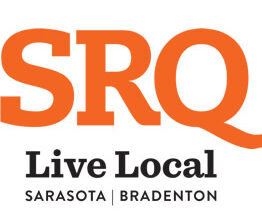For Female Entrepreneurs, North Texas Is the Land of Opportunity

Women have played an essential role in the economic growth of North Texas from the start. Sarah Horton Cockrell, considered Dallas’ first businesswoman, built the first iron bridge across the Trinity River in 1872. Entrepreneurs like Ebby Halliday and Mary Kay Ash enhanced the legacy, and today, powerhouses like Celanese’s Lori Ryerkerk are carrying the baton.
Still, in a land that’s filled with corporate giants, Ryerkerk is the region’s lone female CEO at the helm of a Fortune 500 company. Where DFW shines is in its support of women-owned businesses. Wells Fargo recently named the region the nation’s No. 2 metro area for female entrepreneurs due to its strong local economy, supplier diversity programs, training opportunities, women’s business centers, and capital support.
“Dallas-Fort Worth showcases a balanced growth profile for women-owned businesses,” the report said. “The rank in growth of women-owned firms coupled with top-five positions in employment growth and the share in the number of women-owned businesses suggest the region is a hub for women-owned firms.”
The pandemic had a transformative impact on female entrepreneurship in North Texas—and across the country—as life reevaluation pushed many women to start their own companies. Despite the economic shock of Covid-19, women launched more enterprises in 2020 than they closed, and women-owned businesses grew their workforces and increased revenue, while comparative numbers for companies owned by men decreased.
On the verge of passing Chicago as the third-largest metro area in the country, North Texas remains a great place to launch an idea. It’s a place where aspiring entrepreneurs can connect with corporate leaders or funders who have the power to change the fortunes of their enterprises. “Dallas is still a big, small city,” says Jennifer Sanders, executive director and co-founder of the Dallas Innovation Alliance. “People who would be hard to meet in other places are very friendly and welcoming here.”
That collaborative environment extends to mentorship, and women business leaders are increasingly positioned to help bring the next generation along. Sanders says the innovation community has been especially supportive and collaborative. Connecting with resources is much easier with a guide. “Entrepreneurship is hard, but we have created a wonderful ecosystem and strong formal and informal communities,” Sanders says.
An especially bright point in DFW’s strong entrepreneurial market is the gain in the number of Hispanic female entrepreneurs. Among Texas’ 1.4 million women-owned businesses, Hispanic owners are the fastest-growing demographic. “Despite all the challenges that women of color face, we still see the continued growth of Latina entrepreneurs,” says Latosha Herron Bruff, senior vice president of diversity, inclusion, and community engagement at the Dallas Regional Chamber.
Jasmin Brand, founder of the women’s entrepreneur network HER Texas, also notes the growth of Hispanic women-owned businesses, as well as the need for more resources and skill-building opportunities. Her organization now spans 73 cities in Texas and has more than 26,000 members and supporters.
‘WE ARE THE BANK’
Brand aims to respond to the need for a virtual network for those outside major metropolitan areas. The state is ripe for opportunity. The Wells Fargo study ranks Texas No. 8 nationally due to its strong economy, growing population, diverse workforce, and services tailored to meet the needs of female entrepreneurs.
“The state’s women-owned businesses significantly influence the economy,” the report said. “Ranking third in share of women-owned firms, second in employment, and second in revenue share, Texas highlights the vast presence and impact of women-owned businesses.”
For her part, Brand’s strategy has been to “sneak broccoli in the brownies” and make sure women entrepreneurs are building their network and skillset while enjoying themselves at HER Texas social gatherings. “Our events look fun, but underneath the surface, there is a very powerful movement of economic empowerment with a more aggressive approach,” she says.
That forward-thinking outlook is reflected in several incubators and business development programs throughout North Texas. At premier retail destination Legacy West in Plano, Rachel Chang leads the Legacy West Small Business Cohort, which isn’t limited to women entrepreneurs but has more than 90 percent women founders, a testament to the robust business environment for female entrepreneurs. Launched three years ago, the cohort selects a dozen businesses yearly for networking and training in branding, real estate negotiation, business planning, and more. “I’m really encouraged with the state of women entrepreneurship in DFW,” Chang says. “The appetite for entrepreneurship is motivated by barriers and the gender pay gap.”
Despite the positive trends, a significant imbalance still exists. Women own nearly 40 percent of U.S. businesses but generated just 5.8 percent of firm revenue in 2023. Just 8 percent of companies in the S&P 500 are led by women entrepreneurs, and last year, women CEOs finally outnumbered CEOs named John.
Women still receive less than 2 percent of venture capital funding, and financial support continues to be a hurdle in scaling women-owned businesses. Brand, of HER Texas, is pushing to shift the funding role into the hands of female entrepreneurs, considering that women will control 75 percent of discretionary spending by 2028, she says. Her organization’s members and supporters raise funds for a giving circle meant to lift other female business owners. “We want to empower women to have an active role,” Brand says. “We are the bank.”—Will Maddox
Author
Will is the senior writer for D CEO magazine and the editor of D CEO Healthcare. He’s written about healthcare…



